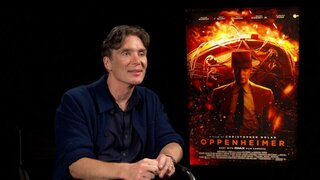Create a free profile to get unlimited access to exclusive videos, sweepstakes, and more!
Christopher Nolan Initially Wanted to Shoot WWII Drama Dunkirk Without a Script
You've got the hand it to the guy: he's a fearless storyteller.
In the summer of 2017, Christopher Nolan stepped out of his blockbuster comfort zone with a stab at grounded, non-fiction cinema. The end result was Dunkirk, a harrowing, inspiring, and critically-acclaimed dramatization of the British Expeditionary Force's miraculous escape from the shores of France during the early years of World War II.
True to the director's patented creative style, the film (now available to stream on Peacock, alongside many other Nolan masterpieces) is told in a nonlinear fashion, jumping between various vignettes about the soldiers, pilots, commanders, and civilian sailors who took part in the evacuation. That looser, almost documentary-style approach was always part of the plan, though Nolan initially wanted to go so far as to shoot the damn thing without the blueprint of a screenplay to guide him along.
For More on Christopher Nolan:
Oppenheimer's "Chilling" Final Scene Came to Christopher Nolan While Lying in Bed
Which Fast & Furious Movie To Watch First? Christopher Nolan's Surprise Pick Revealed
How The Dark Knight Trilogy Chose Each of Its Iconic Villains
Why Christopher Nolan Didn't Want a Script for WWII Drama Dunkirk
"I said I don’t want a script. Because I just want to show it, it’s almost like I want to just stage it. And film it," the filmmaker said while in conversation with his brother, Jonathan (co-writer of The Dark Knight and a co-creator of the Westworld TV show), for the official screenplay tie-in book published by Faber and Faber. Thankfully, his wife and producing partner, Emma Thomas, talked him out of it. "[She] looked at me like I was a bit crazy and was like, 'Okay, that’s not really gonna work.' And I said: 'Okay, fair enough.' I did need a script."
Even so, his desire for a "stripped down" methodology resulted in a dearth of dialogue and the director's shortest movie to date with a runtime of an hour and 46 minutes (not counting Nolan's independently-financed debut, Following).
"I approached it from a geographical point of view," he explained. "I knew all the events I wanted to show, and I came up with a structure that let me show that. And I detailed the structure very, very minutely. Figured all of that out before I wrote anything. And then, wrote the script very, very quickly. I mean, weirdly quickly. I just sort of found myself finishing it. It’s a very short script, as well — 76 pages."
The overall goal was to challenge himself and subvert audience expectations by moving away from exposition-heavy movies like Inception and Interstellar, though that would certainly return in full force with the mind-bending Tenet. "I could say to the studio, I want to shoot a 76-page script. I want to experiment. The film is very experimental. I wanted to grab that opportunity with one of these great, simple stories. Try that. See what happened," Nolan said.
Several years later, the writer/director/producer would return to the backdrop of the Second World War — albeit from the perspective of the United States — in Oppenheimer (now streaming exclusively on Peacock), which is currently up for 13 Academy Awards, including Best Picture, Best Director, and Best Adapted Screenplay. Similar to Dunkirk, the atomic bomb thriller is not a traditional war movie in the sense that it's less concerned with combat and carnage than it is with humanity's extraordinary penchant for survival and ingenuity.
"I wouldn’t feel comfortable doing what I consider to be a war movie, never having fought in a war," Nolan admitted to his brother. "You always feel a bit fraudulent as a filmmaker. I would feel truly fraudulent. Whereas a survival story, I can tap into that emotion. Dunkirk as a survival story, as a sort of ticking-clock suspense story, I feel confident and comfortable taking that on. I don’t know how people who haven’t been in a war take on a war movie."
Dunkirk is now streaming on Peacock along with several other Nolan classics: Memento (2000), Batman Begins (2005), The Dark Knight (2008), The Dark Knight Rises (2012), and Oppenheimer (2023).































